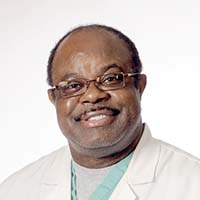It’s not how Ryan Baltz imagined his much-anticipated family vacation would start. By the end of his family’s nine-hour drive from Nashville to Pawleys Island in July, Baltz realized his ankles were swollen.
“Everybody was telling me that I didn’t look good,” Baltz says.
A visit to a local walk-in clinic quickly turned into a trip to the emergency department at Tidelands Waccamaw Community Hospital. He stayed in the hospital for the next four days.
Ultimately, doctors diagnosed Baltz, 37, with congestive heart failure.

“He was on the way to the grave, literally speaking,” said Tidelands Health cardiologist Dr. John Ijem, who treated Baltz during his stay. Tests showed Baltz’s heart was pumping at 10-15 percent of its normal volume.
“I was shocked and surprised,” Baltz says about the diagnosis. “I’m not one to worry right off the bat. Everybody else was freaking out.”
Baltz’s time in the hospital was the culmination of several years during which his health had been declining. Baltz, who works for his family’s landscaping business, admits he knew something was wrong — he was frequently short of breath and often felt bloated. But he put off going to the doctor.
Instead, he used energy drinks to keep himself going during the day.
“The problem was that this had been going on for many, many months, and he had been compensating,” Dr. Ijem says. “When he got to us, the bottom was falling out.”
Hospital staff gave Baltz medications that helped him eliminate six liters (more than 1.5 gallons) of fluid that had built up in his body due to his weakened heart. During his treatment, he experienced ventricular tachycardia, essentially spasms in the chamber of his heart that pumps blood to his body.

Baltz lacked many of the other conditions that accompany congestive heart failure, such as chest pain, coughing and wheezing. Among other things, he had no blocked coronary arteries and wasn’t overweight.
Doctors eventually found the root cause of Baltz’s heart problem: sleep apnea.
Baltz’s apnea caused him to stop breathing periodically in his sleep, reducing his oxygen levels and causing his heart to beat erratically, weakening it.
Baltz was also a smoker, which made things even worse, according to Dr. Ijem. From his experience, many congestive heart failure cases are related to untreated sleep apnea.
According to the National Institutes of Health, untreated obstructive sleep apnea increases the risk of heart failure by 140 percent, the risk of stroke by 60 percent and the risk of coronary heart disease by 30 percent.
Tidelands Health physicians eventually released Baltz with the promise that he would continue his treatment and participate in a sleep study when he got home. A life vest device monitored his heart rhythm for the following month.
In late August, doctors in Tennessee took him off the life vest as his condition improved. Baltz is still recovering and continues follow-up tests in Tennessee, but he appreciates the life-saving treatment he received from the Tidelands Health clinical team.
“That’s a good hospital,” he says. “I’m thankful for the care I got there.”
Baltz says the emergency has prompted him to make changes to his lifestyle, including quitting smoking, to improve his health so he can enjoy life with his girlfriend and 7-year-old daughter.
“It changed my perspective on a lot of things,” Baltz says. “Now that I’m getting older, I need to be worrying about me. I need to make sure I’m here for a while longer. Life is short.”


Dr. John Ijem
Cardiologist at Tidelands Health Cardiology
Call to Schedule
Bio
Dr. John Ijem is a cardiologist at Tidelands Health Cardiology. He specializes in heart and vascular care.
Learn MoreMedical Education
Education
University of Nebraska Medical Center
Residency
University of Nebraska Medical Center
Fellowship
University of Nebraska Medical Center
Meet the Expert
Dr. John Ijem
Call to Schedule
Dr. John Ijem is a cardiologist at Tidelands Health Cardiology. He specializes in heart and vascular care.





